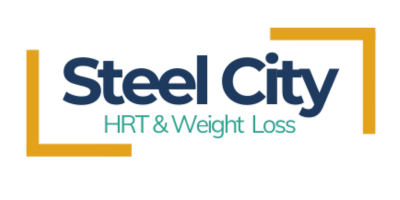
The Truth About TRT: Are You Boosting Your Health or Risking It?
Testosterone Replacement Therapy (TRT) is more than a buzzword these days—it’s a lifeline for men grappling with the challenges of low testosterone. If you’re a man between 30 and 60 years old, juggling work deadlines, family responsibilities, and the creeping sense that your energy isn’t what it used to be, you’re not alone. The question is: can TRT be the solution you’ve been searching for, or does it come with hidden risks that outweigh the benefits? Let’s dive into the facts, myths, and everything in between to help you make an informed decision.
What Happens When Testosterone Levels Decline?
Picture this: You’re in your late 30s. Life is busy but manageable, and then it starts. You feel a little more tired at the end of the day. The gym sessions that used to feel invigorating now feel like a chore. Your belt needs another notch—but not in the good way. Sound familiar?
This gradual decline is often due to testosterone levels dropping naturally as men age. Starting around age 30, testosterone levels can decrease by about 1% per year. For some men, this decline is manageable, but for others, it can lead to a condition called hypogonadism, where levels fall below what’s needed to support optimal physical and mental health.
Symptoms of low testosterone include:
Fatigue that doesn’t improve with rest.
Mood swings or increased irritability.
Loss of muscle mass and strength.
Reduced libido or difficulty with sexual performance.
Brain fog or trouble concentrating.
For middle-class men balancing demanding jobs, families, and personal health, these symptoms can feel like a slow erosion of vitality. TRT offers a way to hit the reset button.
Why Testosterone Replacement Therapy Works
1. Reclaiming Physical Vitality
One of the most immediate and noticeable benefits of TRT is its impact on physical health. Think of it as restoring the fuel your body needs to function at its best. With proper testosterone levels, men often experience:
Increased muscle mass and improved strength.
Enhanced fat metabolism, making it easier to shed stubborn weight.
Higher energy levels that carry you through long workdays and family commitments.
I once spoke with a friend in his 40s who had been on TRT for six months. Before starting, he’d struggled to keep up with his teenage son during weekend basketball games. Six months later, he was the one setting the pace—and beating his son at one-on-one. Stories like this aren’t uncommon.
2. Mental and Emotional Resilience
Low testosterone doesn’t just affect your body; it affects your mind. Brain fog, irritability, and even mild depression can creep in. TRT can help:
Clear the mental cobwebs, improving focus and decision-making.
Boost mood and confidence, giving you the edge to tackle challenges with clarity.
Reduce feelings of anxiety and stress.
Many men describe this shift as a return to their old selves—or even a better version. One patient said, “It’s like I finally got my drive back. I’m sharper, more patient, and I feel like I’m in control again.”
3. A Revitalized Sex Life
Let’s not tiptoe around this. Testosterone plays a critical role in sexual health. Low T can sap your libido, make intimacy feel like a chore, and even lead to performance issues. TRT restores hormonal balance, leading to:
Renewed interest in intimacy.
Improved erectile function.
Increased confidence in the bedroom.
It’s not uncommon for couples to report feeling closer and more connected after TRT improves their physical relationship.
What Are the Risks of TRT?
Every medical treatment comes with risks, and TRT is no exception. However, it’s important to separate fact from fearmongering. Let’s break down the most common concerns:
1. Cardiovascular Health
Some early studies suggested a link between TRT and heart problems, but more recent research has shown that, when managed properly, TRT doesn’t increase cardiovascular risks. In fact, it may improve heart health by reducing fat mass and improving insulin sensitivity.
2. Fertility Concerns
TRT can suppress sperm production, which may affect fertility. If you’re planning to have children, this is a crucial factor to discuss with your doctor. Alternatives like Clomid or HCG may be recommended to stimulate natural testosterone production without compromising fertility.
3. Prostate Health
There’s a lingering myth that TRT causes prostate cancer. Current research debunks this, showing no direct link. That said, men with a history of prostate issues should undergo thorough screening before starting TRT.
4. Hormonal Imbalances
Improper dosing can lead to side effects like acne, fluid retention, or mood swings. Regular blood work and a knowledgeable healthcare provider are key to avoiding these issues.
Is TRT Affordable for the Average Guy?
One of the most common misconceptions about TRT is that it’s expensive or out of reach for the average man. The truth? It’s more accessible than ever.
With the rise of specialized TRT clinics and telehealth platforms, many men find that the cost of TRT is comparable to a gym membership or daily coffee habit. Monthly prices typically range from $50 to $200, depending on the provider and treatment plan. For many middle-class men, the benefits far outweigh the cost—especially when you consider the alternative: lost productivity, reduced quality of life, and mounting health concerns.
TRT is Part of a Bigger Picture: A Lifestyle Overhaul
Here’s the thing: TRT isn’t a magic pill. It’s a tool—an incredibly effective one, but still just a part of the equation. To maximize the benefits, you need to pair TRT with healthy lifestyle choices:
Exercise: Strength training and cardio enhance the effects of TRT and improve overall fitness.
Nutrition: A diet rich in lean proteins, healthy fats, and vegetables supports hormone balance.
Sleep: Consistent, quality sleep is crucial for hormone regulation and overall recovery.
Stress Management: Chronic stress can undermine the benefits of TRT. Practices like mindfulness, meditation, or simply taking time to unplug can make a big difference.
Many men find that TRT kickstarts their motivation to embrace these habits, creating a virtuous cycle of health improvements.
FAQs About TRT
Q: How do I know if I have low testosterone?
A: Symptoms like fatigue, low libido, weight gain, and mood changes can be indicators. A blood test is the only way to confirm low testosterone levels.
Q: Is TRT safe long-term?
A: When managed by a qualified healthcare provider, TRT is generally safe and effective for long-term use. Regular monitoring ensures that any potential side effects are caught early.
Q: How long does it take to see results?
A: Many men notice improvements in energy and mood within a few weeks. Physical changes like increased muscle mass and fat loss may take a few months.
Q: Will TRT make me feel like a different person?
A: No, TRT doesn’t change who you are. It helps restore balance, making you feel like the best version of yourself.
Q: Can I stop TRT once I start?
A: Stopping TRT can lead to a return of low testosterone symptoms. If you decide to discontinue, consult your doctor about the best way to taper off safely.
Conclusion: Is TRT Right for You?
TRT isn’t just about boosting testosterone levels. It’s about reclaiming energy, confidence, and quality of life. For men in their 30s to 60s feeling the weight of low testosterone, TRT offers a proven path to feeling stronger, sharper, and more vital.
Yes, there are risks, but with proper medical supervision and a commitment to overall wellness, these risks are manageable. If you’ve been wondering whether TRT could be the answer to your struggles, now is the time to consult a healthcare provider and start your journey toward feeling like yourself again.
Steel City HRT and Weight Loss is a clinic that provides safe and affordable hormone replacement therapy (HRT) and weight loss to men and women in Pueblo, Colorado. If you have any questions or would like to schedule an appointment to discuss treatment don't hesitate to call, text, or email at [email protected] or (719) 669-4223.

